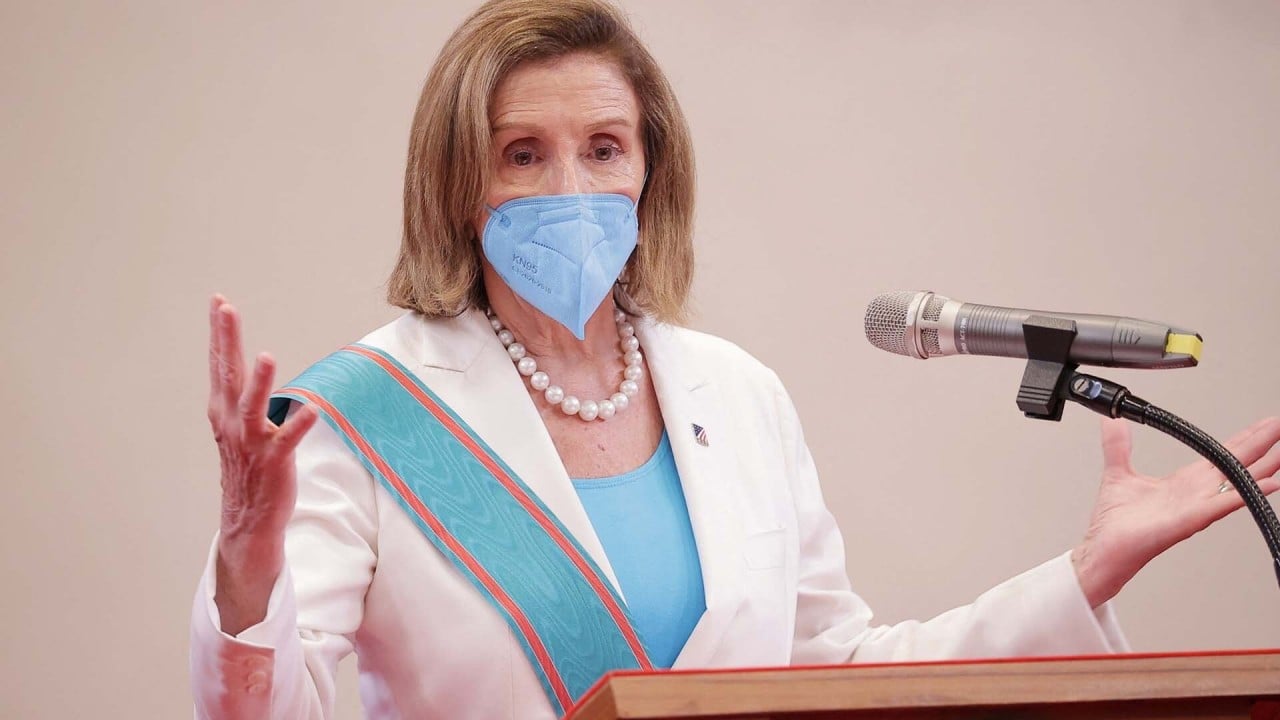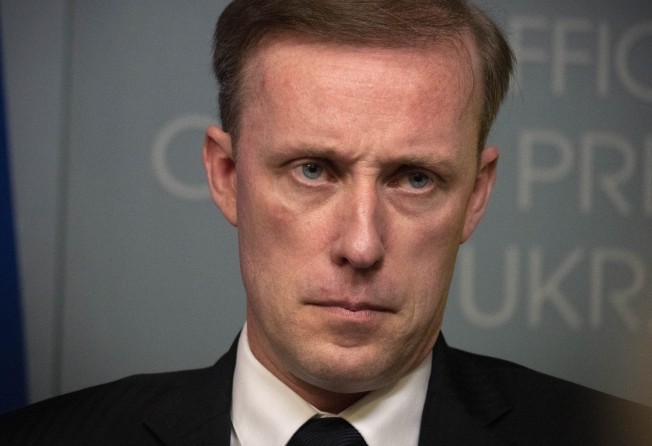
06:03
US House Speaker Pelosi meets Taiwanese president, officials and activists on controversial visit

Washington’s top national security official urged Beijing on Monday to resume defence talks with the United States, which China cut off after US House Speaker Nancy Pelosi visited Taiwan over the summer.
“Since the elevated and aggressive actions of the Chinese military around Taiwan started in August, we have not had the military-to-military communication that we believe can help create more stability and reduce the risk of misunderstanding,” National Security Adviser Jake Sullivan said.
“We hope to get that back on track.”
Sullivan’s comments were the latest sign of the high tension still present between Washington and Beijing more than two months after Pelosi’s visit to Taipei and the large-scale Chinese military drills around the island that followed.
After Pelosi became the first US House speaker to fly to Taiwan in 25 years, Beijing conducted several days of large-scale, live-fire military drills, in what observers said was effectively a blockade of the island.
The Chinese government also cancelled military talks with the US and other bilateral dialogues on climate change and illegal drugs.
Even so, Sullivan also said the US and China have already made their positions about Taiwan clear to each other over the last two years, at the highest levels of government, including during calls between US President Joe Biden and Chinese leader Xi Jinping.
“We have been able to communicate”, Sullivan said, and “the PRC has been able to communicate its perspective to us.”
“So I don’t think the issue there is one of communication,” he said.
Asked about the severed communications, the Chinese embassy in Washington called Beijing’s stance “necessary warnings to the provocations of the US and Taiwan and justified actions to defend national sovereignty and security”.
Embassy representative Liu Pengyu said that Washington must “take concrete actions to fulfill its commitment of not supporting ‘Taiwan independence’, and uphold peace across the Taiwan Strait and the stability of China-US relations, so as to create conditions for resuming mil-to-mil exchanges between the two countries”.
Sullivan’s remarks came just over a week before Biden and Xi are expected to travel to the Group of 20 summit in Indonesia, where they could meet face to face for the first time since Biden took office in January 2021.
In that time, the US-China relationship has steadily worsened over a wide range of disputes, from trade policy to human rights to military tensions with China’s neighbours.
But the Taiwan issue in particular has led many officials in Washington to grow alarmed about a possible war over the island – especially in light of Russia’s invasion of Ukraine in February.
Beijing claims Taiwan as part of its territory and says it will eventually unite the island with the mainland, by force if necessary. Beijing opposes other nations’ contacts with Taiwanese government officials.
Under official US policy, Washington does not recognise Beijing’s claim of sovereignty over Taiwan but “acknowledges” that the claim exists.
The US has not had formal diplomatic relations with Taipei since 1979, when Washington switched its diplomatic recognition to Beijing. But under the 1979 Taiwan Relations Act, Washington maintains an unofficial relationship with Taipei and is obligated to sell Taiwan arms used in a “defensive character”.
At the 20th Communist Party congress in Beijing last month, Xi said China “will never promise to renounce the use of force, and we reserve the option of taking all measures necessary”.
US Secretary of State Antony Blinken warned last month that Beijing may be trying to “speed up” its timeline to invade the island.